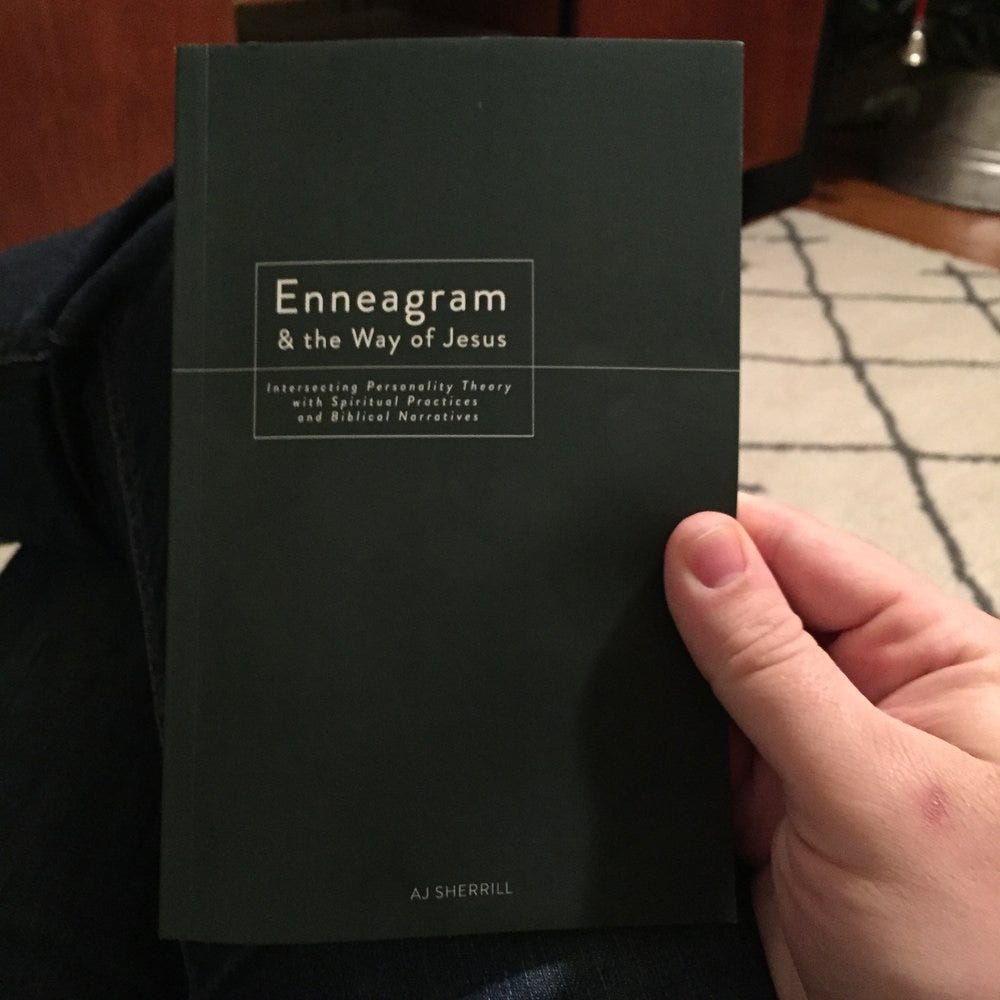Review: Enneagram and the Way of Jesus by AJ Sherrill
My journey with the Enneagram goes back around 10 years. By no means, do I consider myself any sort of Enneagram expert although I do have a deeper familiarity with it from the countless conversations I have dealing with it along with studying it over that time. It has been used by a number of communities I have been a part of, leaned into by seminary professors I highly respect, and by many friends seeking after personal health and growth. Most recently, I have personally wrestled through discovering and rediscovering my 'number' which has led to deep personal reflection (and hopefully some transformation) while also spurring me to do some hard work of growing in relationship with God and others after becoming aware my tendencies in health and unhealth, and how another may receive me and my actions.
My first exposure to the Enneagram came through friends and the community at Mars Hill Bible Church. Interest grew on it because it was a completely different 'system' or method of understanding individuals (as compared to Strength's Finder, Myers/Briggs, etc.) which seeked not to limit or box in people but rather free people to thrive through leaning into the complexities that is within every person. Over the years, I have encountered a number of books that have helped unpack and expand my understanding of the Enneagram and myself. This past August, I was intrigued when it was announced that AJ Sherrill would be Mars Hill's new lead pastor and that he had focused on the Enneagram as part of his doctoral dissertation at Fuller. Soon after I saw that AJ had self-published 2 books already (respect) and that he had another on the way, this time leaning into the Enneagram and discipleship.
All of this to say, I was excited to pick up this book when it became available, Enneagram and the Way of Jesus: Integrating Personality Theory with Spiritual Practices and Biblical Narratives, and hope the following thoughts on it are helpful and encourage you to read.
The Writing:
I can't confirm this but I would venture a guess and say that this is a modified version of AJ's dissertation. Regardless, it is written in a very academic format and tone - especially the first half of the book. If you are familiar with his preaching style, the language he uses and structure, it is much in the same vein so please do not let this discourage you. The book is still written in a very accessible manner, he does engage at a depth that for some may require additional reading to fully absorb.
The Content:
Though written in an academic format, the content is broken down in very manageable pieces. The book itself is only 108 pages, so AJ makes his way through a lot of content, very quickly. In many ways, the book serves as a good introduction to the Enneagram - giving a brief history, addressing questions individuals and groups have about its use, unpacking the types/triads/wings, and then giving the reader a practical next step.For those more familiar with the Enneagram, this book may leave you wanting. AJ isn't necessarily pushing into a new territory on the subject. Where the book does hold its own is in the final third, when he spends time inviting readers into practices that their number type might best resonate with and posture themselves for not only personal growth but growing relationship in faith with God.
My Takeaway:
As mentioned in my introduction, the Enneagram at it's core is a tool that helps to free individuals. That said, I have often seen the Enneagram used in way that tries to constrict/explain away a person or their actions by well meaning individuals. I believe this comes from the influence of personality assessments that have attempted to lean more towards a testable/scientific approach, when by its very nature the Enneagram does not operate in such constructs.Early on the book I was able to put down any of these apprehensions I had when he wrote:
"People are not homogeneous creatures that can simply be reduced to a type to explain the totality of their existence. However, everyone resides within one core personality more than the others. This is the starting place to discovering one's uniqueness." (p.21)
AJ shows readers that the Enneagram provides a great starting point and 'homebase' for personal growth and how it then helps aid in one's process of becoming. With his turn in that last third of the book towards application for individuals in spiritual practices - AJ provides a step for each number by providing an example of how they might engage God in very practical manners through the use of Biblical examples.
He states, "Information is good, and application is better, but transformation is best." (p.85) This process of becoming or transformation is key. This book flushes out well the information and application aspects but with that said, I want more from this book in regards to transformation. Which I believe would come to no surprise to AJ as he even ends the book by giving a few ways for communities engage the topic further together. His acknowledgement of this, leaves me to believe that he has much more to share - not only on how the Enneagram can help individuals grow but also on how it can help followers of Christ as a whole can grow in discipleship. I would love to have more of that written out. So fingers crossed, maybe there is another book to follow doing just that!
Overall, I really enjoyed this book and would recommend it as it serves as a great introduction for people who are no familiar with the Enneagram but also gives a gentle push for those further down the road in their personal transformation to continue to seek after it. My GoodReads rating: 3/5


